black lives matter
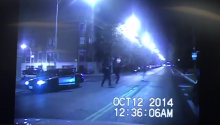
Cook County state’s attorney Anita Alvarez announced Dec. 7 that there will be no charges in the death of Ronald Johnson.
Ronald Johnson was shot and killed by Officer George Hernandez. According to Alvarez, Johnson resisted arrest and refused to drop a gun he was holding. Dashcam video of the shooting was also released. Officers had purported it shows Johnson holding a gun, but the images — dark and blurry — are inconclusive.
There is no sound on the video.
Alvarez had said she would make her decision based on "whether there was enough evidence to bring charges against the officer," reports the Chicago-Sun Times, and concluded there was not.
Johnson’s mother has sued the city and Officer Hernandez, claiming that her son was not carrying a gun.
Read more here.
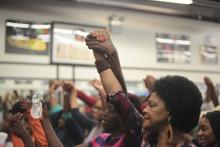
7 Our ancestors sinned the great sin of instituting slavery; they are no more—but we bear their shame.
8 The system of slavery and institutionalized racism ruled over us,
and there is no one to free us from their hands.
9 We get our bread at the risk of our lives because of the guns on the streets.

I remain deeply disturbed by the visual of the small, black girl being tossed across the classroom by a “man” in a police uniform. Intellectually, I am aware that what appears to be an act of senseless violence is yet another contribution to a mountain of overwhelming evidence that black lives do not matter in our society. But I also know Ben as a loving human being, filled with a deep sense of compassion and justice. How do I reconcile the two?
I must step back and look more closely at the roots of his behavior. What led him to such force? Was it a trained response? Was there a personal antecedent? … Does it matter?
On the occasion of Martin Luther King’s assassination, Robert Kennedy spoke to an audience of black people in Indianapolis — one of the few major cities not to erupt in violence. Kennedy implored the audience to not react in anger at the “awful grace of God.” My friend Ben Fields is currently caught up in such a moment and I would like to help him navigate the treacherous waters where he has suddenly found himself.

Black Friday, the day after Thanksgiving known for shopping, has become a rallying point for #BlackLivesMatter activists, not just retailers looking for a holidays bump in sales.
After the non-indictment decision in Ferguson, Rahiel Tesfamariam of Urban Cusp created the #NotOneDime boycott campaign, that “calls for a cease on all non-essential shopping from Thanksgiving through Cyber Monday and reclaiming Black Friday as a national day of action and service,” according to the campaign’s website.
When Time Magazine announced that Black Friday sales fell $1 billion this year, many on Twitter called it a victory for #NotOneDime.
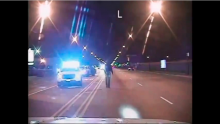
An 80s song told us “video killed the radio star.” The music was catchy and referred to the varied attitudes we all had about technology. What is this? What would we do now? Fast-forward 35 years, and videos are the very technology for which we are so thankful.
Video changes everything.
When the Chicago Police Department released the dash-cam video of 17-year-old Laquan McDonald being shot 16 times by one of their own, the city braced for disruption. When we learned of the $5 million settlement to the McDonald family that stipulated the video remain confidential, the city braced for disruption. When residents discovered that footage from a nearby security camera had been deleted by Chicago police, the city braced for disruption. Mayor Emanuel and his team had seen the video, and were afraid of the public reaction.

The clerk in Kentucky is still trying to avoid doing her job while arguing that religion means never having to sacrifice or compromise in any way. The war-on-Christmas crowd is still passing around that story about a red coffee cup lacking snowflakes. Those who believe in an eye-for-an-eye are cheering as bombs fall in the Middle East in response to another horrific terrorist attack. Many Christians are still ignoring the calls for justice coming from the streets of Chicago, Minneapolis, and cities all across the land.
Don’t you want to throw up your hands sometimes? Or maybe just throw up?

After more than a year, and an eventual judge order, Chicago police today released a dashcam video showing officer Jason Van Dyke shooting 17-year-old Laquan McDonald 16 times. Police released the video the same day Van Dyke was indicted on first-degree murder charges. He is being held without bail.
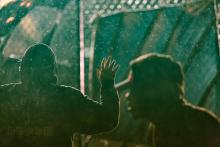
Counterdemonstrators described as "a group of white supremacists" opened fire on protesters near a Black Lives Matter camp in Minneapolis Monday evening, according to reports. The Minneapolis Police Department reported that all victims received "non-life threatening injuries."

Banners posted at predominantly white churches across the country in support of the “Black Lives Matter” movement have been vandalized — some of them more than once.
Since the Unitarian Universalist Association passed a resolution last summer affirming the movement, 17 of more than 50 congregations that have posted signs have seen them vandalized or stolen.
The Rev. Neal Anderson, senior minister of the Unitarian Universalist Fellowship of Northern Nevada in Reno, said his largely white congregation posted its fourth sign after the third one was stolen on Halloween weekend. The first banner was vandalized in August.
“For me the vandalism was sort of this physical and visible sign of white supremacy,” he said of the first act of vandalism.

Though some critics have claimed that the film doesn’t do enough to show the effects of the suffrage movement, it seems appropriate that Suffragette ends while the fight is still going on. In the era of Black Lives Matter, battles for reproductive rights and immigration reform — causes with hoped-for but still undetermined outcomes — it’s reassuring the see a film that portrays historical characters in a similar situation. The women of Suffragette are confident in their eventual victory not because they know what will happen. They’re confident because they have to be — because for them, allowing defeat was not an option.

When I was 15, I stepped into a warm bath on my church's sanctuary stage. I was a bit of an outsider - the occasionally bullied Chinese-American kid in the white suburb - and I had found a place of belonging at this Chinese immigrant church. I made a joke about how I felt the same way about my new faith as my 16-year-old friend felt about her new driver's license: I had no idea how I ever lived without this. Even my pastor chuckled as he clasped my hands, preparing to dunk me.
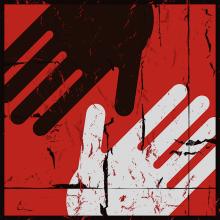
#BLACKLIVESMATTER is being touted as our uniquely contemporary civil rights movement. Yet it bears striking resemblance to the black power movement of decades past.
Who can represent #BlackLivesMatter, be involved, or be its leaders? It’s clear that black people can. Can others? And what sorts of black folks? Ben Carson? Cornel West? Two of the three co-founders are queer black women. And what about the role of the faith community, of clergy? The movement’s incredible racial justice work notwithstanding, it puts on display the identity politics that continue to complicate the body politic in contemporary American life.
Jennifer Harvey’s Dear White Christians: For Those Still Longing for Racial Reconciliation (Eerdmans) is one of the most significant recent books addressing identity and politics, focusing on the intersections of race, anti-racism, and religion. In its pages, Harvey, an American Baptist minister and associate professor of religion at Drake University, deconstructs reconciliation as a paradigm and offers a constructive practical vision of reparations. Harvey’s work in trying to make sense of her own embodied white identity—through her studies at Union Theological Seminary and service in a host of ministry settings addressing racial justice—provides background that allows her to explore multiple racial justice issues, making her book relevant for an intercultural audience.
Harvey’s thesis is clear: Reconciliation as a paradigm has failed to address racial injustice in the U.S., and the church needs to shift to a reparations paradigm to better address our racial situation. In a reconciliation paradigm, racial separation denotes racism, making diversity and togetherness the primary criteria for determining racial righteousness in the church. Issues related to structural justice are significant within visions of reconciliation, but they take a back seat to the ultimate concern of inclusion.

The crush of religious people I have just witnessed is staggering. Under one roof, a tapestry of faiths flock together -- Buddhists, Christians, Sikhs, Muslims, Humanists, Jews -- congregated in a singular location to discuss some of the most pressing matters facing humanity today. But for every external difference of faith I see, this conference is harmonious. People are in good spirits. Here in Salt Lake City I attended my first Parliament of the World Religions -- the largest inter-religious conference in the world -- and I have been moved from what I have witnessed.

While the Black Lives Matter movement officially started after George Zimmerman’s acquittal in the death of Trayvon Martin, the fight for true racial equality began long before then with the Civil Rights Era. Among the allies of the African American freedom activists were the Kennedy family, a large number of Jewish-Americans and notably, progressive evangelicals.
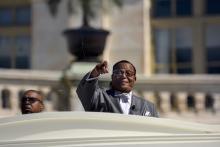
Facing throngs of people on the National Mall, Nation of Islam Minister Louis Farrakhan called for justice Oct. 10 as he rallied African-Americans, Latinos, and others during an anniversary protest at the U.S. Capitol.
In a speech that lasted more than two hours, Farrakhan said the United States was hypocritical for insisting other nations were violating human rights, all the while describing its own misconduct as something that causes Americans “dissatisfaction.”
His “Justice or Else!” event came 20 years after hundreds of thousands of black men came to the same stretch of lawn between the Capitol and the Washington Monument to rededicate themselves to being better fathers, sons, and citizens.
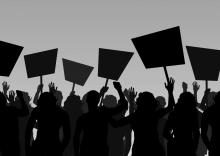
IT SEEMS AS though after liberation, the voice of conscience left the South African public sphere and retired to a quiet church life, so that the current generation barely knows that the church ever influenced South African political and public affairs.
On the day of Nelson Mandela’s inauguration, Archbishop Desmond Tutu famously announced that he was returning to do the “real” business of the church by leaving politics to qualified politicians. Years later, during the era of President Jacob Zuma, Tutu often lamented about the undesirable state of the country under the current leaders. He must have forgotten that by leaving politics to politicians in 1994, he too played a role in leading the nation to this position he now regrets.
Kairos South Africa recently celebrated its 30th anniversary. Church leaders from as far as Norway, the U.S., and Palestine all remembered how the 1985 Kairos document taught the worldwide church a hopeful language to address injustice. Yet now the majority of young people in South Africa do not know anything about this heroic church history.
South African anti-apartheid leader Allan Boesak referred to the Kairos movement as a “dangerous memory.” It does indeed have the potential to be a dangerous memory—one that should be remembered by every one of the Christians who make up 81 percent of the South African population. Unfortunately, it is a memory held by only a select older minority.
How can this change? This summer several members of the new generation of South African Christian leaders traveled to the U.S. to study how to be effective Christian agents of social justice. At the Wild Goose Festival in North Carolina, I listened to Bree Newsome explain that it was her faith in God that gave her the courage to pull down the Confederate flag at the South Carolina capitol after the massacre at Emanuel AME Church in Charleston. “You come against me with hatred and oppression and violence. I come against you in the name of God. This flag comes down today!” she said.
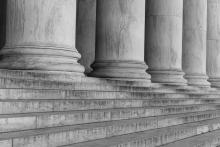
The city of Baltimore has agreed to a settlement with Freddie Gray's family, reports The New York Times.

But unlike those infused with the sacristy of church hymnody sung during the civil rights era led by Rev. Dr. Martin Luther King in the sanctuaries of Southern congregations, there is street cred in "Hell YouTalmbout" and other millennial anthems of the Black Lives Matter movement.
Anthems as hymns crafted for the public square raise challenging lyrics that are no less spiritual, yet are intended for civic conversion of societal systems and strictures rather than individual conversion of internalized salvation.
And just as young celebrities increasingly have come forward to add voice to the injustice of egregious brutality by police, Monáe also invokes a Christian profession of God as just judge against human injustices of racism, violence, and supremacist ideologies.